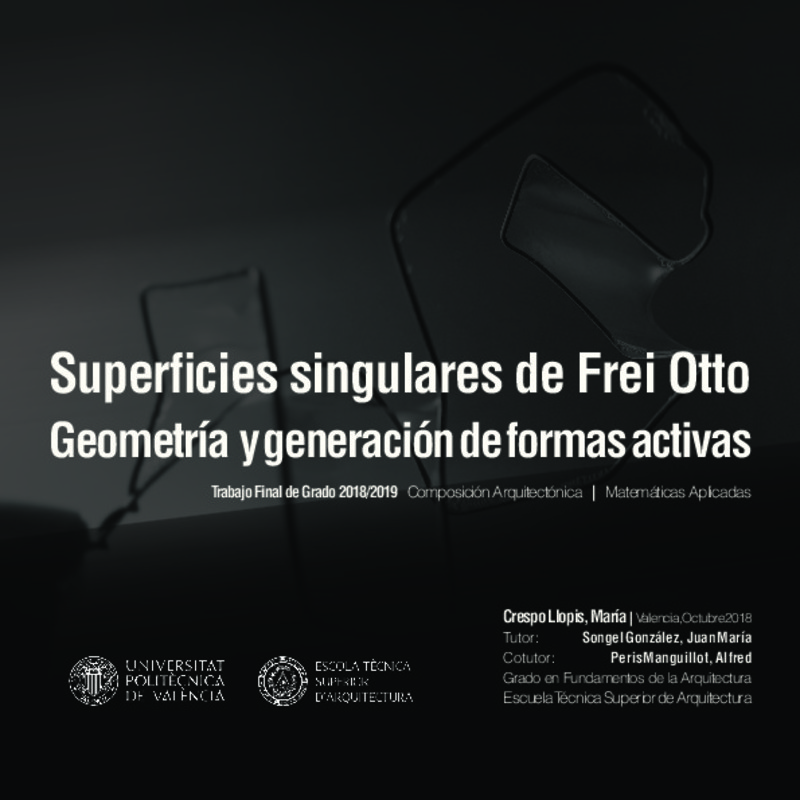JavaScript is disabled for your browser. Some features of this site may not work without it.
Buscar en RiuNet
Listar
Mi cuenta
Estadísticas
Ayuda RiuNet
Admin. UPV
Superficies singulares de Frei Otto. Geometría y generación de formas activas.
Mostrar el registro completo del ítem
Crespo Llopis, M. (2018). Superficies singulares de Frei Otto. Geometría y generación de formas activas. Universitat Politècnica de València. http://hdl.handle.net/10251/179935
Por favor, use este identificador para citar o enlazar este ítem: http://hdl.handle.net/10251/179935
Ficheros en el ítem
Metadatos del ítem
| Título: | Superficies singulares de Frei Otto. Geometría y generación de formas activas. | |||
| Autor: | Crespo Llopis, María | |||
| Director(es): | ||||
| Fecha acto/lectura: |
|
|||
| Resumen: |
[ES] Frei Otto es uno de los arquitectos del siglo XX que más investigó las estructuras de forma activa, que visibilizan con mucha claridad la relación entre forma y estructura, con formas que siguen el flujo de las ...[+]
[EN] Frei Otto is one of the 20th century architects who most thoroughly investigated form-active structures, which make visible the relationship between form and structure very clearly, with forms following the flow of ...[+]
|
|||
| Palabras clave: |
|
|||
| Derechos de uso: | Reserva de todos los derechos | |||
| Editorial: |
|
|||
| Titulación: |
|
|||
| Tipo: |
|
recommendations
Este ítem aparece en la(s) siguiente(s) colección(ones)
-
ETSA - Trabajos académicos [4687]
Escuela Técnica Superior de Arquitectura







